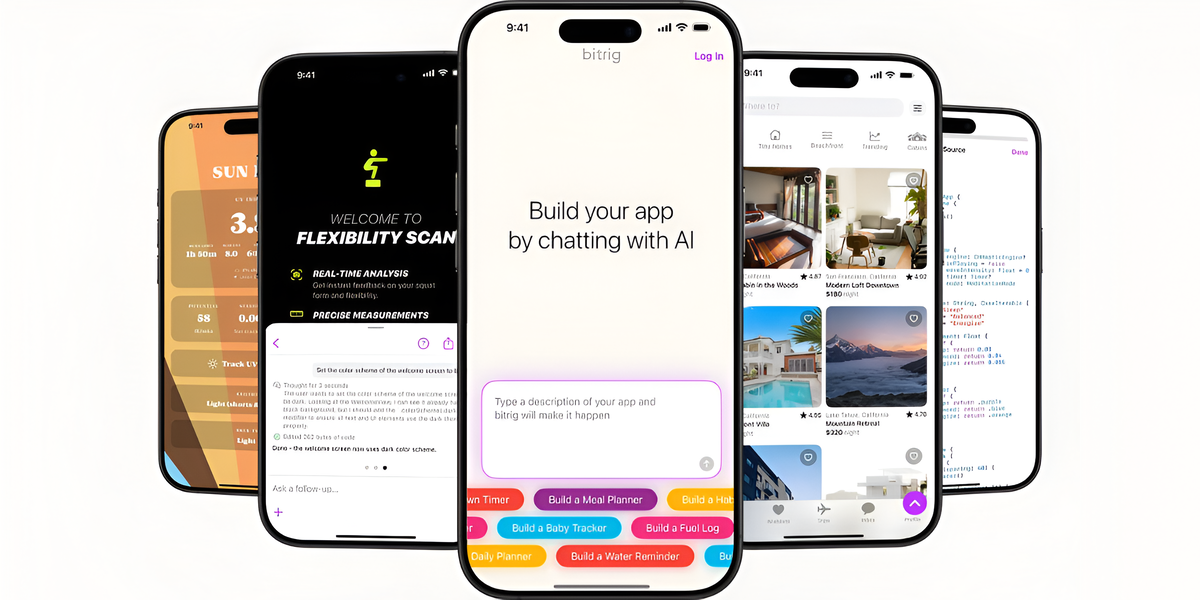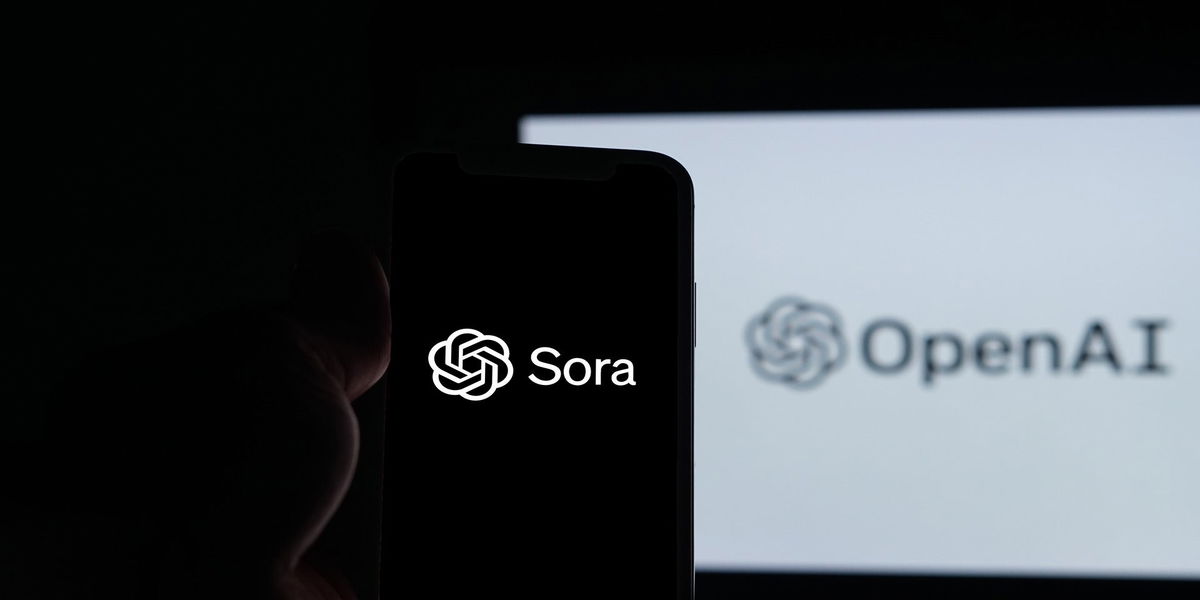When the birth control pill was first introduced in the 1960s, it was celebrated for the control and freedom it gave women.
Since then, most women in many countries have used hormonal contraception at some point in their lives.
So why are more and more women today turning to technology to control their fertility?
Many influencers on social networks are constantly reviewing apps that, in addition to helping you track your menstrual cycle, act as a tool to find out when your most fertile days are.
Many say these practices help increase their chances of preventing pregnancy.
British phenomenon Montana Brown, who has 1.2 million followers on Instagram, recently announced that she is pregnant two years after quitting the birth control pill.
In a post, she said she had been tracking her menstrual cycle “naturally” for these two years, using one of the so-called fertility-monitoring methods (FAM for English acronym).
“It taught me so much about my cycle that when it came time to transition and plan a baby, I felt so in tune with my body,” she wrote.
The post was part of a paid ad for Natural Cycles, a fertility app that was created in 2013 and currently has 2.5 million registered users.
In 2018, Natural Cycles became the first birth control app approved by the U.S. Food and Drug Administration (FDA).
creators of this uses an algorithm to determine fertility status as a function of body temperature
And they guarantee that it has a 93% success rate, just like the regular birth control pill.
The idea behind fertility apps is that they offer an alternative to traditional birth control methods and work by highlighting the days when you’re most likely to get pregnant, i.e. the most fertile days relative to your menstrual cycle.
However, there have been complaints about Natural Cycles from women. They say they got pregnant while using it.
A Natural Cycles spokesperson told the BBC: “As with any birth control method, it is important to use the product correctly to maximize effectiveness because no method is 100% effective at preventing pregnancy, even when used perfectly.”
He added that the effectiveness of the app is “higher than most fertility monitoring methods.”
Experts emphasize that condoms are the only birth control method that can prevent pregnancy and protect against sexually transmitted infections (STIs).
In 2018, the British agency that regulates ads in the United Kingdom banned an ad on Facebook that it claims is “highly accurate” and provides “a clinically proven alternative to other birth control methods”.
Authorities considered the ad “misleading”.
Despite this, both this app and other fertility tracking apps like Flo and Clue claim to have millions of users worldwide.
The fertility monitoring method, according to the NHS, involves describing the signs and symptoms of fertility during the menstrual cycle.
These include cycle length, daily body temperature readings, and changes in cervical secretions.
Notes, It can be up to 99% effective if followed consistently and accurately.
But Dr Annabel Sowemimo of the NHS Sexual Health Clinic in Leicester, England, says the method is not suitable for all women.
“If your lifestyle isn’t stable, you’re not in the same place, and you don’t have access to your calendar, your thermometer, or your sleep patterns are irregular, all of these can make your work difficult and reduce the reliability of the method,” he warns.
Dr. Sowemimo points to this The method is also not recommended for women with irregular cycles.women with polycystic ovary syndrome (PCOS) or postpartum.
The expert confirms that there are other factors that concern him with regard to the technology used for the fertility monitoring method.
“The problem with some apps is that they’re subscription based, so they’re a form of birth control with benefits. [comerciales] says total.
“They can inflate it or make it look more effective than it is.
“We saw some apps have real potential, but they were released too early without a reliable evidence base.
“Because there is a lot of pressure from investors,” he adds.
April Inskip from Leicestershire, England, has been using the natural fertility monitoring method for almost a decade.
For eight years, she tried different hormonal contraceptives before deciding it wasn’t right for her.
“Over the years, I realized that it wasn’t worth the cost. [la píldora] it caused it in my body,” he says.
“I was feeling lethargic, cranky, had frequent acne breakouts, and didn’t want to deal with my hormones anymore.”
April takes her body temperature first thing in the morning and saves her reading in an app on her phone.
Your daily readings are plotted on a virtual graph that lets you see the corresponding increases or decreases throughout your cycle.
“I’d rather see the whole picture than have an app take the information and interpret it for you,” he says.
“I feel very confident in reading my body and feel comfortable with this method.”
April claims that if she gets pregnant, she’ll feel like she’s using another method of contraception, and she’s unsuccessful.
“I can’t blame the method as everything has a risk,” he says.
“If you have any doubts and plan to avoid pregnancy, use a barrier method as a backup. However, even condoms are not 100% effective.”
The UK’s National Health Service states that minor side effects of the pill can include mood swings, nausea, breast tenderness and headaches.
He states that the risk of serious side effects, such as blood clots and cervical cancer, is very low.
Helen, from Nottinghamshire, England, has been following the natural fertility monitoring method since she stopped using hormonal contraceptives three years ago at the age of 30.
He says he’s taken the mini-pill for a few years, but feels it affects his mood.
“This made me try going off hormonal birth control completely to see if there were any changes,” she says.
“I felt much better, however, it took two years for my periods to come back“.
Helen, now 33, says she does not plan to have children in the near future, but believes she is “mature and financially stable” enough to cope if she does become pregnant.
She adds: “I’m so glad I stopped taking hormonal contraceptives before I wanted to have children, because I didn’t know it would take this long for my body to return to normal.“.
Now she tracks her menstrual cycle with the help of an app on her phone.
“I learned more about my cycle and my body with this app,” she says.
“It helped me understand the expected changes to my body over the course of the month: what is normal and what is potentially abnormal,” he says.
Sexual health expert Annabel Sowemimo points out that social networks play a role by convincing some women not to use hormonal contraceptives.
“With the rise of TikTok, people are sharing information that makes them more mindful of the side effects of birth control, so this is a very clear trend,” he says.
add this The claim that long-term use of hormonal contraceptives can cause infertility is not true.
“People are afraid, especially because we’re going to have children late and late,” says the expert.
“The biggest impact is not the impact of birth control on fertility, but probably the decline in fertility for people in their late to mid-30s.”
Note that you can receive notifications from BBC Mundo. Download and activate the new version of our app so you don’t miss our best content.
Source: Exame













